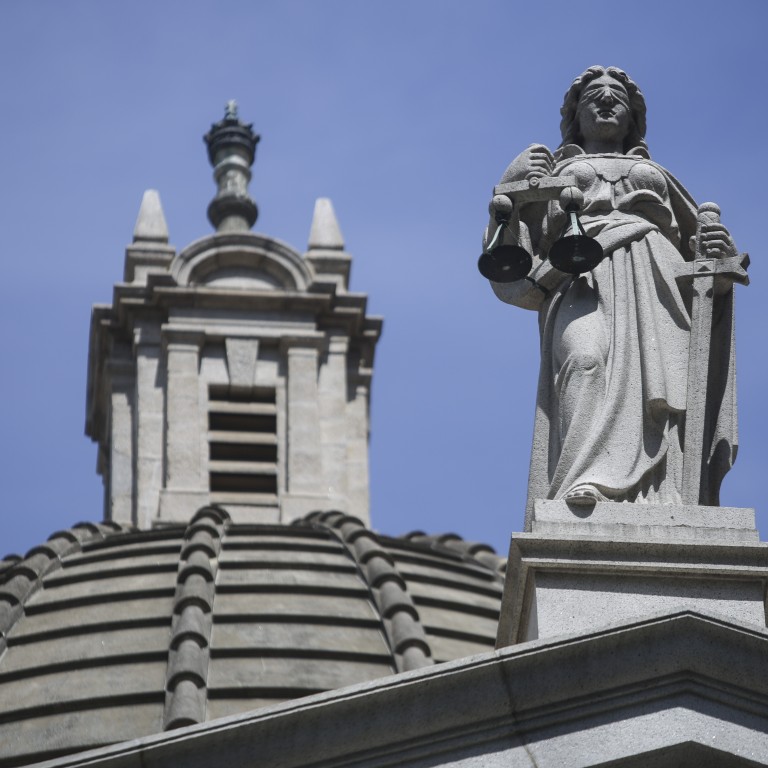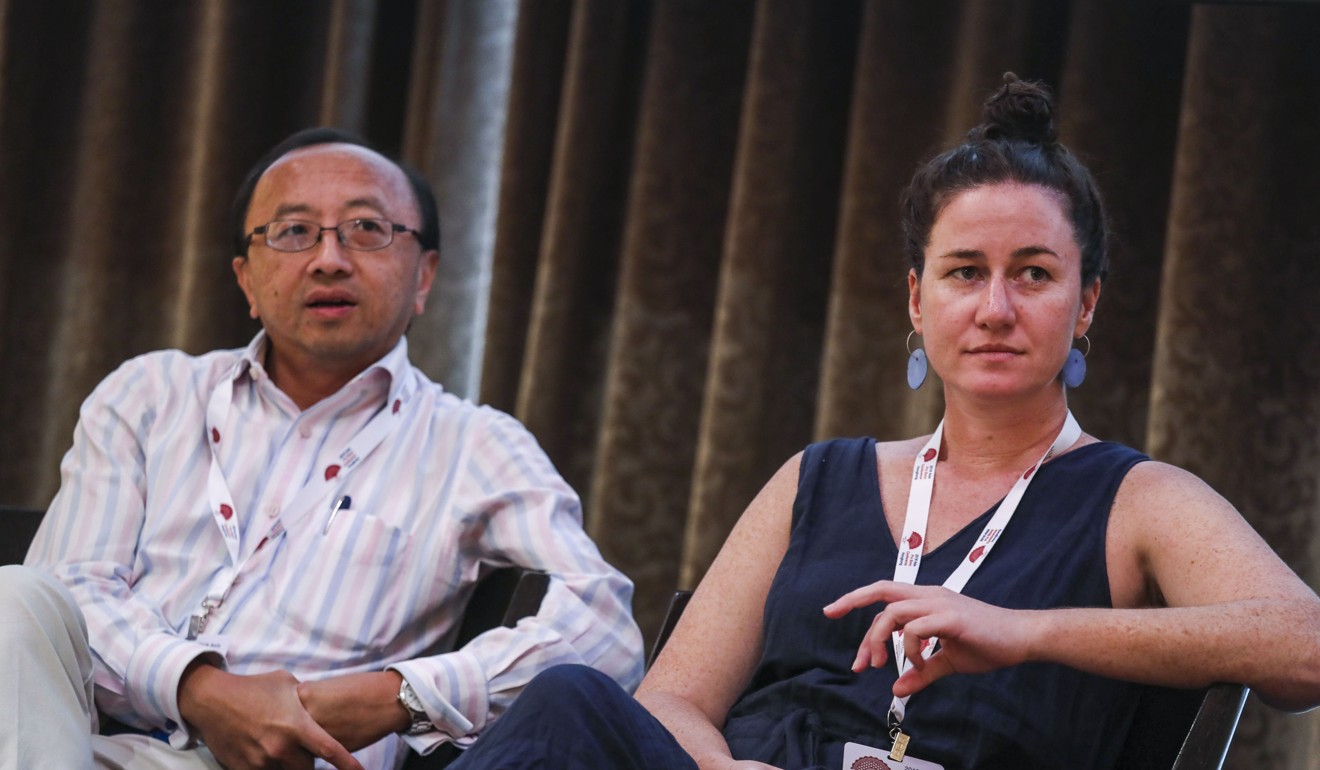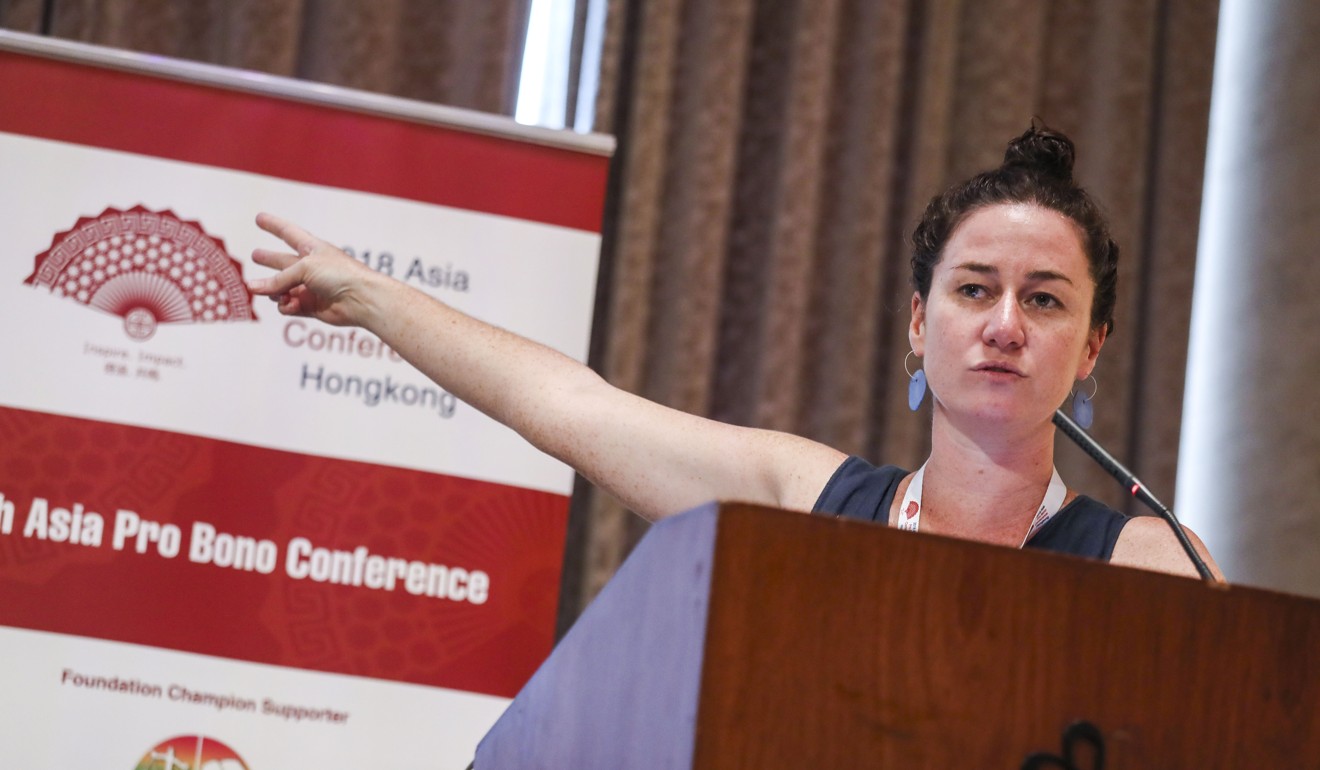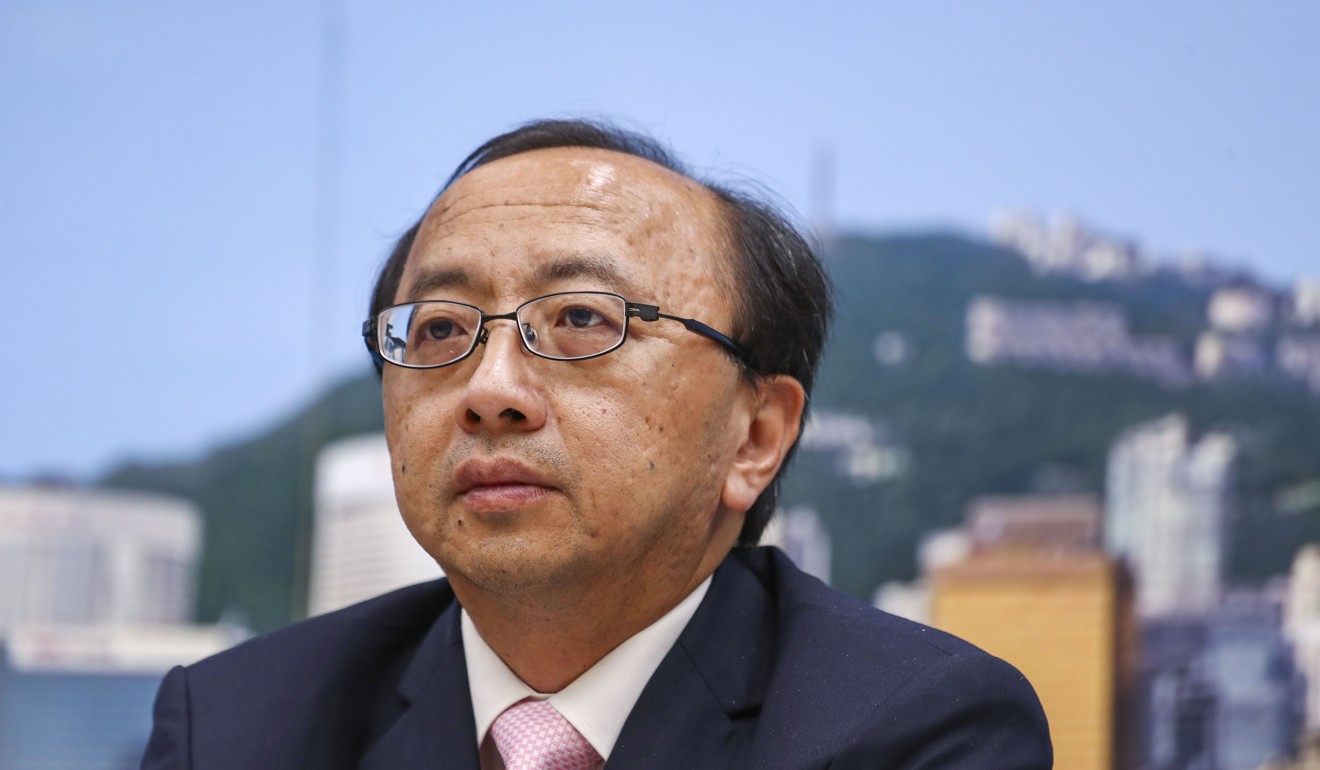
Hong Kong urged to catch up with regional neighbours and remove obstacles to lawyers providing free legal advice
- Law firms in the city are reluctant to allow employees to give free legal advice over fears insurance will not cover a lawsuit
- Australia and Singapore have both reformed laws to make it easier for lawyers to give free legal advice to organisations and members of the public
Hong Kong authorities have been urged to catch up with regional competitors in encouraging free legal advice by investing public money and setting up service platforms, according to local and Australian legal experts.
They said Australia and Singapore have launched reforms to give NGOs, and ordinary citizens, greater access to legal services needed for their daily lives, such as settling disputes with landlords and employers, or even with the police.
To provide legal advice in Hong Kong, voluntary or not, qualified lawyers must first get their law firms to buy professional indemnity insurance for them, in case their clients sue them for making a wrong call in the legal process.
In Hong Kong, lawyers can only be insured collectively as part of a law firm.
This means that lawyers cannot provide legal advice to NGOs or underprivileged people, unless they get permission and financial support from their employers.

There are fewer than five established legal clinics in Hong Kong. But human rights lawyer Chong Yiu-kwong said many law firms are reluctant to let their employees do community work, because the risks incurred may not be covered by their insurance.
“It’s made life tough for doing good, because they would run the risk of being sued. Why can’t we improve the system?” Chong said.
Davyd Wong, an in-house lawyer who was chairman of the Hong Kong Association of Corporate Counsel, said law firms that have pro bono guidelines were in the minority in the city.
“It can be very difficult for a junior lawyer, or an associate, to say ‘I want to go and help a lay client who can’t afford a lawyer’ on a particular case,” Wong said. “Firstly, you wouldn’t know where to find those clients, secondly, you wouldn’t necessarily have the authority to say, ‘my firm would take you as a client’.”
In Australia and Singapore, however, lawyers can easily volunteer in legal centres or brief consultation sessions known as “legal clinics”. In some cases, lawyers can also take the matter to court.
Five books human rights lawyer Philip Dykes couldn’t live without
There are almost 200 legal centres across Australia, while the Singapore Law Society maintains four legal clinics.
Australia previously required all lawyers volunteering for legal centres to work on the advice of qualified lawyers in a law firm, with similar concerns as to insurance. The rule was later relaxed, and lawyers offering free legal advice were collectively insured across Australia by a statutory body.
In Singapore, it is the Law Society which paid for lawyers’ insurance when attending the legal clinics.
Bridget Burton, the director of the Pro Bono Centre at the University of Queensland, Australia, said Hong Kong should explore the applicability of these overseas examples, as it was “incredibly rare” for the needy to turn against those who volunteer to help them.
She said sometimes offering free legal advice can be as simple as drafting a will, or settling a dispute with someone’s landlords.

She added that, with the vast number of pro bono legal centres, some of them could be just around the corner. Hers is one of around 200 legal centres in Australia.
“If you can save someone’s tenancy, then they don’t become homeless, then won’t get into illness and don’t go to drugs. There’s a deterioration of life that we can stop,” Burton said.
Shaun McCarthy, director of Newcastle Law School Legal Centre, has helped run the centre’s summer “Law on the Beach” clinic for the past 15 years. The clinic is located on Newcastle Beach, a popular weekend getaway a 2½ hour drive north of Sydney.
People’s right to protest must be protected by law, Occupy trial told
“What we are finding is that not many young people come to our clinics, and also we’re getting feedback that some people feel it’s intimidating going into a university building when they have not been to a university,” McCarthy said.
“So, the university decided to go where Aussies go during summer … People could come off the sand and meet with our students and talk about their case – it’s meant to be an accessible, highly visible venue, but very relaxed.”

Principal law lecturer at the University of Hong Kong, Eric Cheung Tat-ming, who runs one of the city’s few clinics providing free legal advice, has his volunteer lawyers insured by the publicly funded Duty Lawyers Service scheme.
For each year, it may involve few hundred thousand dollars, but could help many lawyers provide free legal services
Cheung believes the Hong Kong government should either consider revising local laws on professional indemnity, or bulk purchase of insurance for pro bono lawyers.
“For each year, it may involve a few hundred thousand dollars, but it could help many lawyers provide free legal services. The government could absolutely afford it.”
Cheung, who also served on the governing council of the Law Society, said that without revising the law, the existing legal framework was not conducive to pro bono work. He said many lawyers offering free legal advice – including those under the government’s duty lawyer scheme to give legal advice at district offices – run the risk of violating the professional code, which requires lawyers to be covered by professional indemnity.
“This is a genuine ticking time bomb, because it’s a compulsory requirement,” he said.
Of this, Burton said: “In some respects, you just have to take a leap of faith that at the end of the day these community lawyers are just as professional and capable as all others.
“If there’s a will to make it work, there is a way. None of these issues are insurmountable,” she added.

